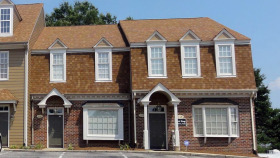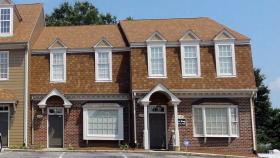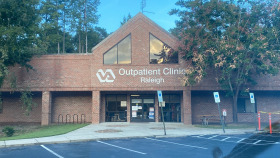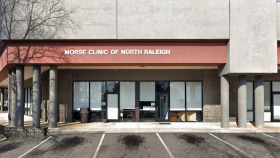Expert Insights
North Carolina is taking a hard stance against drug dealers caught selling drugs that are directly linked to fatal overdoses, particularly those linked to fentanyl. Last year, Chatham County Sheriff Capitan Ronnie Miller was proud to announce that a local Cary man was being charged with the death of a Chapel Hill man who overdosed and had fentanyl, heroin, and cocaine in his system upon passing. The official name for this charge is “death by distribution,” and this was the second time Chatham County used it. Sheriff Miller said they anticipate many more drug dealers will face charges in the coming months and years, showing their commitment to ridding the area of these deadly drugs and the people who supply them.
~ Rita Milos
Cost of Drug Rehab in Cary
The cost of drug and alcohol rehab in Cary differs depending on the characteristics of the treatment programs, such as:
Treatment setting (inpatient or outpatient)
Features and amenities (luxury or standard rehab facility)
Duration of program (30, 60, or 90 days)
Health insurance coverage
Location (city vs. suburb)
Cary, North Carolina, Drug and Alcohol Statistics
Cary is one of the major cities in North Carolina, with close to 177,000 people in 2021. Cary, North Carolina, is a diverse community with almost 20% Asians, about 66% white, nearly 8% Hispanic, and close to 8% Black or African American.1
Drug use in North Carolina varies based on the age group of the residents. Statistics from 2020 for residents between 12 and 17 years showed the following:2

About 6% had used illicit drugs in the past month

Close to 11% used marijuana in the past year

Less than 1% used cocaine in the past year

About 2% reported past year prescription pain reliever misuse
Overdose Rates in Cary
There has been a rise in the use of opioids in many communities in North Carolina in the last couple of decades.
Cary, North Carolina, has experienced an increase in opioid overdoses in the same period. Statistics from the town of Cary show a 40% increase in fatal opioid overdoses in 2017 and a 135% increase in nonfatal overdoses in the year before.3
The current opioid use and overdose trend may seem alarming, but you have help in Cary, North Carolina. There are many Cary drug rehabs available for preventing an overdose.
Treatment Admissions in North Carolina
Many residents in Cary, North Carolina, get help from the numerous public addiction treatment centers each year. About 55,000 people in North Carolina received care for drug use and alcohol misuse from publicly funded programs in 2019.4
A national survey showed the following statistics for admissions of individuals 12 years and older into the publicly funded drug and alcohol programs in North Carolina:4
- About 6,600 were admitted for primary alcohol use
- Nearly 3,000 were admitted for smoking cocaine
- Approximately 8,300 were admitted for heroin use
- About 5,000 were admitted for methamphetamine use
- Close to 150 were admitted for using sedatives
Alcohol and Drug Laws in Cary, North Carolina
NC 911 Good Samaritan Laws: NC 911 Good Samaritan laws protect people from persecution during an overdose. You will not be persecuted if you witness an overdose or seek assistance for a loved one experiencing an overdose.16 You do not have to worry about persecution for underage drinking, paraphernalia, or small quantities of drugs.
Naloxone Access: All law enforcement officers in North Carolina have Naloxone for overdose prevention. Anyone in North Carolina can use Naloxone to prevent an overdose in good faith without criminal or civil liability. You can expect providers and pharmacists to prescribe and dispense Naloxone with no criminal or civil liability.16
Adult Drug Treatment Court: North Carolina has an adult drug treatment court for all offenders who need drug and alcohol rehab. You may be eligible to participate in an adult drug program if you meet the following criteria:
- Chemical dependence diagnosis or borderline chemical dependence diagnosis
- Received an assessment for eligibility
- Eligible for an intermediate penalty for all pending crimes
- Meet all local eligibility requirements
Resources
- Cary, North Carolina Population 2020 (Demographics, Maps, Graphs). (n.d.). Worldpopulationreview.com.
- FindTreatment.gov. (n.d.). FindTreatment.gov.
- United States Census Bureau. (n.d.). QuickFacts: Cary town, North Carolina
- Substance Abuse and Mental Health Services Administration. (2020). Center for Behavioral Health Statistics and Quality, National Survey on Drug Use and Health, 2019 and Quarters 1 and 4, 2020: North Carolina.
- Town of Cary, NC. (2019). Fighting the Opioid Crises in Cary.
- Substance Abuse and Mental Health Services Administration. (n.d.). Treatment Episode Data Set (TEDS) 2019.
- Health Resources & Services Administration. (2018). Chapter 9: Sliding Fee Discount Program.
- Substance Abuse and Mental Health Services Administration. (2019). Paying for Treatment.
- U.S. Department of Health & Human Services. (2021). Mental Health and Substance Use Insurance Help.
- NC Department of Health and Human Services. (n.d.). Alcohol and drug Abuse Treatment Centers.
- Town of Cary. (n.d.). About Cary.
- Town of Cary. (n.d.). National Register Properties in Cary.
- US Department of Health and Human Services. (2016). Facing addiction in America: The Surgeon General’s Report on Alcohol, Drugs, and Health [Internet]. Substance Abuse and Mental Health Services Administration (US).
- Substance Abuse and Health Services Administration. (2022). Co-Occurring Disorders and Other Health Conditions
- Grim, B. J., & Grim, M. E. (2019). Belief, Behavior, and Belonging: How Faith is Indispensable in Preventing and Recovering from Substance Abuse. Journal of Religion and Health, 58(5), 1713-1750.
- The NYU Dispatch. (2022). Are Luxury Rehabs the Best Solution to Addiction?
- Substance Abuse and Mental Health Services Administration (2021). Telehealth for the Treatment of Serious Mental Illness and Substance Use Disorders.
SAMHSA Publication No. PEP21-06-02-001 Rockville, MD: National Mental Health and Substance Use Policy Laboratory. Substance Abuse and Mental Health Services Administration, 2021. - Craven County North Carolina. (n.d.). NC 911 Good Samaritan Law.
- North Carolina Judicial Branch. (n.d.). Adult Drug Treatment Court.




































